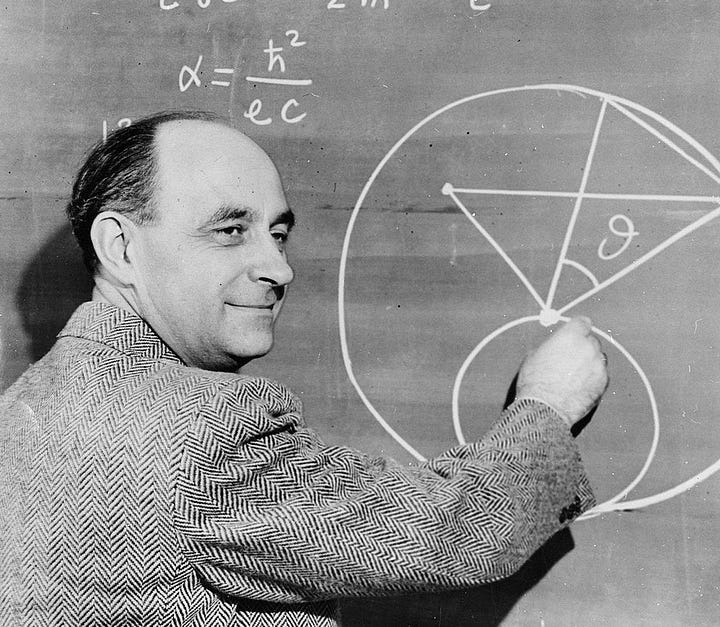
It was not so very long ago that human beings believed that the earth was the center of a very small universe.
For those who spend their time on TikTok, that ‘not so very long ago’ was perhaps yesterday, and to them, the earth is flat.
For the rest of us, our knowledge of the size of the universe has, since Hubble and now James Webb telescopes, become almost incomprehensible. Based on Hubble Deep Field (2003), there are an estimated 2 trillion galaxies in the known universe.
There are also an estimated 100 billion stars just in our own galaxy, the Milky Way. You can do the math. The number of potentially habitable planets is, well, incomprehensible.
In the summer of 1950, while having lunch with fellow physicists Edward Teller, Herbert York and Emil Konopinski, Nobel Prize laureate Enrico Ermi asked the seminal question “where is everybody?”
At that time, the known universe was limited to the Milky Way and not much more, but even in that very small corner of the known universe today, there should have been millions of habitable planets.
Some of those planets, one would have thought, would have developed not just life, but given birth to advanced civilizations. Some of those civilizations would, one could imagine, have developed the science of interstellar travel. And, as many of the billions of stars in the Milky Way alone are millions of years older than the earth, it is not entirely unreasonable to assume that some of them might have gotten here to visit us.
Alas, aside from the evidence, also to be found on TikTok, of extra-terrestrial science buried in the Great Pyramids, there seems to be no sign of anyone at all.
Hence, Fermi’s question, “Where is everybody?”
Fermi, being a scientist and a physicist, ran the numbers. Based on the then-known number of stars, the projected number of planets, a series of calculations on the probability of earthlike planets, the probability of life given on earth, the probability of humans given life, the likely rise and duration of high technology, and so on. He concluded on the basis of such calculations that we ought to have been visited long ago and many times over.
This is referred to as The Fermi Paradox.
The evolutionary biologist Dr. Stephen Jay Gould (The Burgess Shale and the History of Nature) wrote that, in the end, it may prove to be true that intelligence is not the best trait for the survival of a species.
He may have been right.
If you look around at a world threatened with climate change, the disappearance of half the insects on the planet, the extinction of half the species on earth, all of this is the direct product of human activity and ‘intelligence’, you come to realize that Gould may have had a point.
Perhaps all species that get as far as we have reached a point at which their own inventions simply destroy them before they can get any further.
It’s possible.
And it is not as if we are not aware of what we are doing, nor the consequences of our activity. It is just that we seem incapable of taking any action to stop it, to preserve ourselves.
Why is that?
I have my own theory, for what it is worth, and it has to do with our never-ending addiction to the media and entertainment- yet another byproduct of our own intelligence.
We live in a world of self-created illusions — movies, TV, video, TikTok, social media — a never-ending universe of images on screens. The average person today spends 8 hours a day immersed in screen world. Screen world, the stories we tell ourselves over and over, has several universal traits, but one of them is predominant. That is, in the end, no matter what, everything is going to be fine.
No matter how great the disaster, from an asteroid heading to smash into the earth, stopped by a group of offshore oil well workers, to serial killers who are always in the end caught, to superheroes who miraculously appear to save the day — we are always fine in the end — generally thanks to someone else. No need to worry.
This idea of ‘well, someone is going to fix it before it gets really bad’ is deeply inculcated into our psyche. So really, no need to do much. It’s all going to be fine.
Well, maybe it is. but more likely, maybe the stories we tell ourselves are not the best way to address our problems.
There is a group of archaeologists who believe that the Roman Empire collapsed because the Romans brought drinking water into their homes in lead pipes, and perhaps, over time, the lead attacked their nervous systems, destroying their minds.
We don’t have lead pipes bringing water into our homes — we have fiber optic bringing an endless stream of entertainment.
Could be the same result, however.
If you found this interesting, be sure to check out my newest book, The Rise of the Mediaverse and the Death of Truth.
Copyright Rosenblumtv 2023


